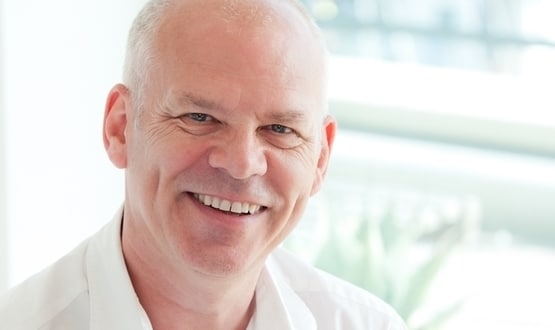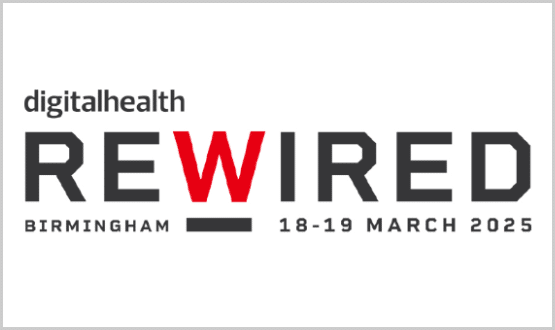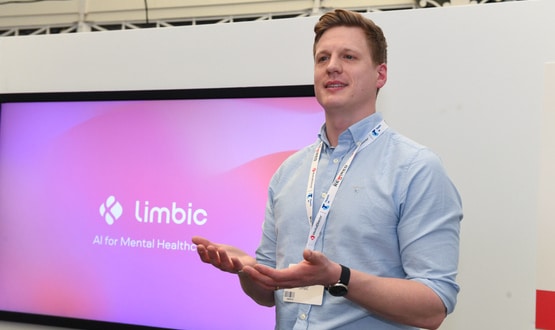Bringing the right care at the right time during Covid-19
- 2 November 2021

In a piece for Digital Health, Chris Sawyer – the innovation lead for digital Health at Innovate UK – discusses innovators who’ve helped strengthen the health service and bring the right care, to the right people, at the right time during the pandemic.
We have all been in awe of the heroes of our health system over the last 18 months. We have rightly applauded the incredible, unceasing and, at times, superhuman efforts of our health workers as they have cared for us during the pandemic. None of us will come close to what they have achieved.
But there are some lesser known stories from Covid-19. Working quietly behind the scenes are some incredible women and men who have been applying their ideas to make our health system stronger, run more smoothly, and be more efficient. While the rest of us were in lockdown, these relentless innovators were applying the latest digital technologies to keep patients safe and treatment pathways open.
They have pivoted machine learning algorithms to solve appointment backlogs; they have used automated technology to help 30 million people get a vaccine; they have used gaming programmes to help patients continue their rehabilitation at home; they have adapted geo-location data to keep people safe as they move around hospitals; and they have created mobile apps to allow patients to track and treat symptoms under the watchful – but remote – eye of their clinician, reducing the need for potentially risky hospital admissions.
Of course, the transformation that these entrepreneurs have helped accelerate was already in motion. There is a huge effort underway to innovate and digitise the NHS led by the Accelerated Access Collaborative (AAC) which is a collaboration between patient groups, government bodies, industry and NHS bodies all trying to fast track the adoption of new ideas in healthcare, including digital technology, to make the NHS one of the most pro-innovation health systems in the world.
But it is a complex system that is often fragmented and hard to navigate, let alone innovate. That’s why one of the recommendations of the AAC was to create a way to fund and grow the digital health sector so that digital technologies could get adopted more quickly. And that’s where we come in here at Digital Health Technology Catalyst.
Solving problems using digital
The innovators we fund through the catalyst are acutely aware of the things digital technology can help solve. They recognise we have a growing, ageing patient population; that there is a shortage of qualified health professionals; and that the rapid increase of chronic diseases like obesity, diabetes and COPD are squeezing our health service from all sides.
They have ideas on how to strengthen our health service and to make it resilient to this, and future, pandemics. What we do is help them get these good ideas developed, tested, and adopted as quickly as possible through UK Research and Innovation (UKRI) funding and our specialist network that can connect them into this increasingly complex system.
Good ideas like GripAble. This company came to us asking for help to develop its cutting-edge technology – an at-home rehab tool for stroke patients that blended mobile gaming with wearable devices and sensors. When outpatient and non-urgent appointments were prohibited during lockdown, patients who were relying on repetitive therapy to aid recovery, couldn’t access their clinicians face-to-face. GripAble put rehabilitation back into patients’ hands literally allowing them to train themselves in their own homes, and track their progress with personalised goals and real-time reports.
We helped GripAble collaborate with the Human Robotics Group and Clinical Neurorehabilitation Centre based at Imperial College London, and they now have 1500 systems deployed across 400 locations in the UK and key opinion leader sites in Europe and the US; with their first 5000 patients training, having completed >90,000 training sessions.
Reimagining hospitals
And then there’s Navenio that has reimagined the way people move about in hospitals. Covid-19 has created complications in how we move in busy spaces and places yet still minimise the chances of infection. Funded by us and also recently backed by the NHSX AI Award, Navenio has combined multiple technologies including motion tracking, sensors, automapping, scheduling algorithms and a self-learnt signal map to create a robust indoor positioning system.
This ground-breaking location technology is highly accurate, to within just a few metres, and is infrastructure-free which allows it to operate where GPS does not. That includes in a 5,000-room hospital across multiple floors, with hundreds of entrances, 24/7. The company calls it the ‘uber’ of porters; we call it revolutionary as it’ll allow hospital management to see the flow of people through its infrastructure, make measures to mitigate the spread of viruses like Covid-19, and make most effective use of its team so help get to the patients that need it most. Navenio has already secured five new customers and shown it can nearly double task throughput in UK hospitals, directly helping it go on to raise $1.1 million of additional investment and secured them another funding project worth £400,000.
Lastly, when it comes to rapid adoption and scaling of health technology there are no better examples than accuRx.
accuRx started in general practice with simple technological innovations that would offer new ways of communicating with patients. We helped accuRx develop its first product, which allowed GP practices to SMS patients, ask them to book important tests, send follow-up information after a consultation, or let them know their prescription is ready for collection.
At the start of the pandemic, lots of accuRx’s users were worried about how they could support patients. So accuRx developed more services including video consultations, remote monitoring of Covid-19 patients, and a way to send documents to patients and get a response. Over 38 million patients have now been messaged using accuRx. Since then, accuRx has launched accuBook – a product for GPs to easily invite patients to book their Covid-19 vaccination appointments via SMS, leading to almost 21 million vaccines managed to date. This incredible success has helped accuRx raise £27.5m in Series B investment and increase its team from 6 to 120.
Working together to improve care
These stories of success are just three out of 134 companies we’ve funded and helped launch and scale. The work we’ve been doing pales in comparison to the contribution from our frontline workers. But together we have been able to improve the lives of patients, relieve pressure on doctors, nurses and hospital workers; and help our economy recover in the process.
If you want to learn more about the Digital Health Technology Catalyst and the impact our innovators have had for patients, for the NHS and for the UK economy so you can scale your idea faster or get further funding, then drop me an email on Chris.Sawyer@innovateuk.ukri.org or follow our UKRI social channels.





1 Comments
This is great but what is really needed is for the big IT and tech companies to facilitate innovation.
It would be great to have ARM or Dyson tell us how they are promoting innovation in healthcare.
Comments are closed.